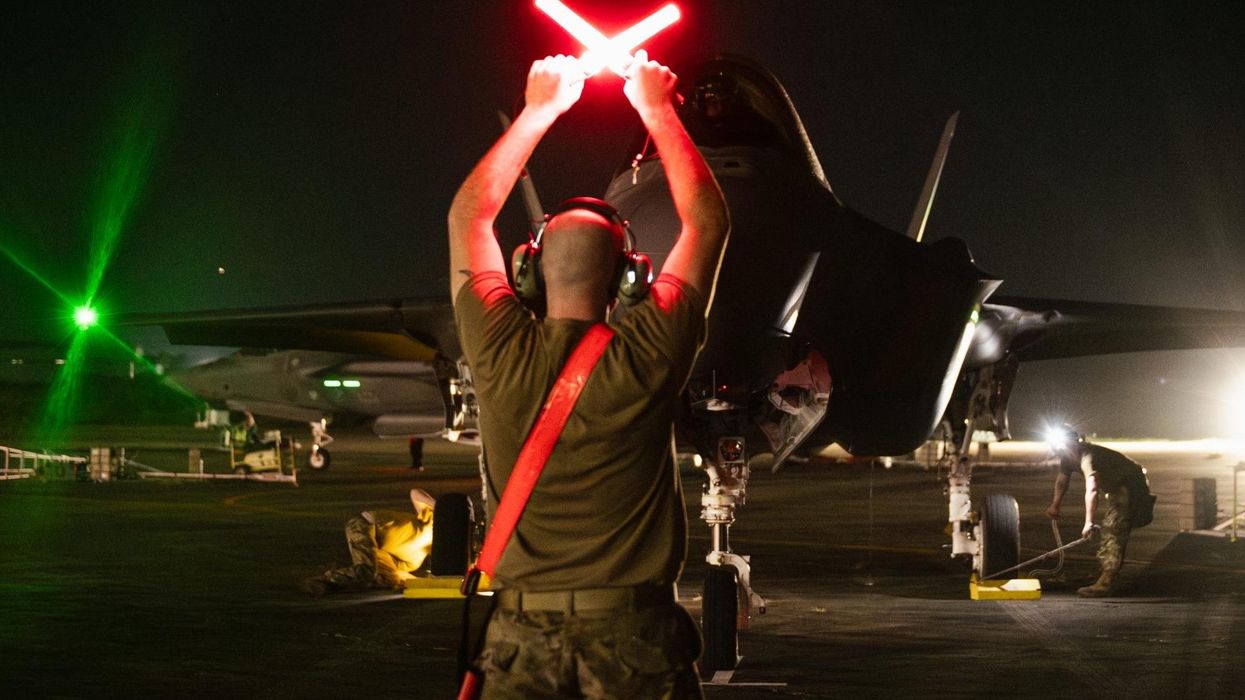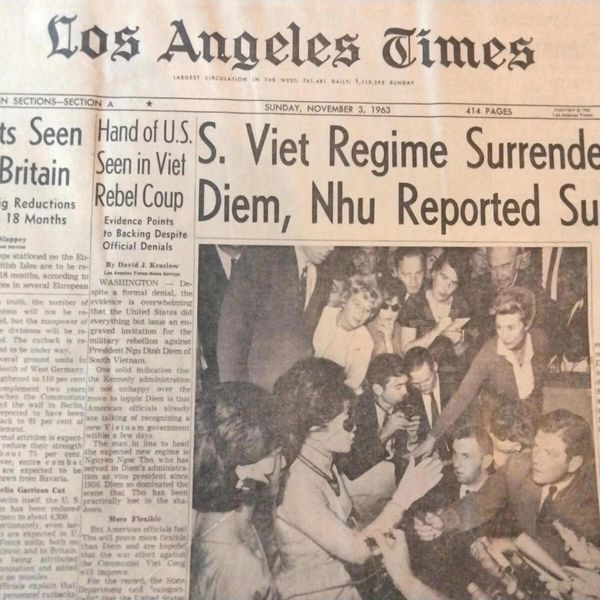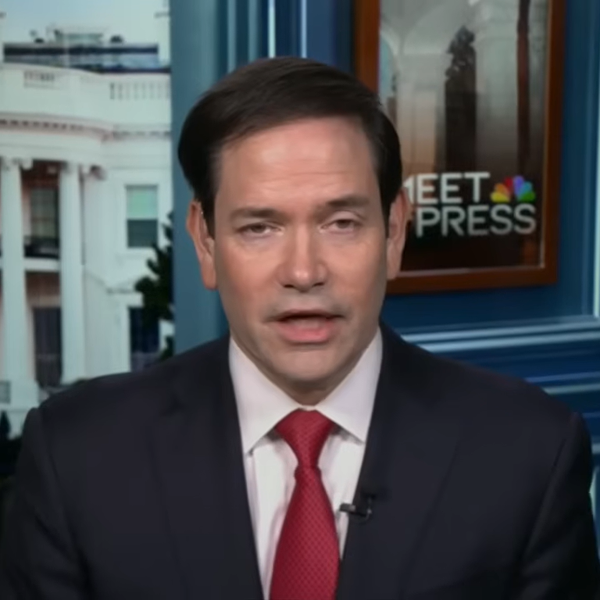For the past several years now, a phalanx of defense officials and retired senior officers have been lamenting the dearth of people willing to serve in the U.S. military.
The problem is particularly acute for the Army, the largest of the U.S. forces, which fell short of its target by 25,000 recruits over the past two years. The situation is so grave that experts claim it imperils the all-volunteer force, an institution that has provided manpower for the American military for half a century.
Why does the Army, an organization that prides itself on achievement, fail at this fundamental task? Excuses tend to focus on market dynamics such as shrinking recruiting pools, lack of knowledge among American youth about service opportunities, and impacts from COVID 19. These factors are undoubtedly relevant, but are they the actual cause of the Army’s failure?
Current officials seem to think so. After failing in 2022, the Army increased its efforts to convince young people to serve. This, combined with a campaign to overcome “misperceptions” about life in the military, was a primary focus of the branch’s $104 million advertising budget in 2023.
Additionally, the Army estimated it invested over $119 million in the future soldier preparatory course. This new program enabled young Americans, initially disqualified because of low aptitude scores or high body-fat results, the opportunity to improve their marks. The Army claimed over 8,800 recruits completed the course and moved on to basic combat training. In the end, however, none of these initiatives enabled the force to achieve its quotas.
If market dynamics are not the underlying cause of the crisis, what is? I believe that the Army fails to meet its recruiting goals not because of a challenging market environment, but rather because a sizable portion of the American public has lost trust in it and no longer sees it as an institution worthy of personal investment.
Professor of sociology Piotr Sztompka defines trust as “a bet about the future contingent actions of others.” He presents the concept of trust in two components: beliefs and commitment. Essentially, a person trusts when they believe something about the future and they act in accordance with this belief. This is directly relevant to recruiting: in a high trust environment, people are more likely to enlist because they have a reasonable expectation of future benefit.
Unfortunately, anyone considering service today can look to myriad examples of the Army failing to meet their end of the bargain. Whether it is a lack of adequate and safe housing for soldiers and their families, the persistence of sexual assault, an inability to address suicide rates or to accurately account for property and funds — or even to develop a comprehensive physical fitness test — the Army, and the Department of Defense more broadly, consistently fail to achieve results.
But these shortcomings, while disastrous, pale in comparison to the Army’s ultimate failure: the failure to win wars.
In his book, “Why America Loses Wars,” Donald Stoker reminds us that winning in war means, “the achievement of the political purpose for which the war is being fought.” Judging by this standard, the Army has clearly failed at its raison d’être, to fight and win the nation’s wars, over the past two decades. This failure has come at catastrophic cost: the loss of over 900,000 lives, the death of over 7000 U.S. service members, and the depletion of eight trillion dollars. Additionally, on the international scene, the U.S. has bled influence, and levels of violence are on the rise.
Considering the wreckage listed above, it is little wonder that the American people have markedly lost confidence in the institution and its leaders in recent years and could explain the unwillingness to volunteer for service. Essentially, signing up for the military is starting to look like a really bad bet.
Adding insult to injury, a recent survey of military members indicates their enthusiasm to recommend military service has also declined significantly. While quality of life issues are highlighted as a concern, one cannot ignore the impact of failed wars on this trend. The 2021 Afghanistan withdrawal, leaving the Taliban in control of the country after 20 years, has left veterans feeling betrayed and humiliated, and naturally, unlikely to encourage others to follow their path in life.
Instead of flailing about trying to overcome challenging market dynamics, therefore, the Army should immediately commit to fixing itself. It can start by admitting its significant failures and its baffling inability to be honest with the American public about them. There are plenty of retired officers who have had public epiphanies about these systematic failures, but this kind of candor and responsibility needs to propagate among currently serving senior officials across the defense enterprise and the political establishment.
Once honesty is re-established as a core value, and the Army has come to grips with the fact that it failed, it can then begin to explore the reason why.
Simply put, the Army fails because it is set up to fail. It was asked to accomplish objectives in Afghanistan and Iraq that it could not possibly hope to achieve. Professors Leo Blanken and Jason Lapore point out what every senior defense official should clearly understand by now: that despite its impressive capabilities, the U.S. military is of limited utility in the type of non-existential conflicts we have fought in the past two decades. This is because the U.S. military is built for and excels at “battlefield dominance,” yet it was saddled with conducting counterinsurgency, reconstruction and building democratic institutions, tasks it was not trained for or prepared to accomplish.
These revelations are not new, senior defense officials should have understood these dynamics all along, and speaking frankly, they did. From General Shinseki’s ignored warnings about the number of troops at the beginning of the Iraq invasion, to ongoing assessments throughout both the Iraq and Afghanistan wars, it seems that it was clear throughout the defense establishment (at least behind closed doors) that the U.S. military could not and would not achieve the nation’s political objectives.
Yet despite this, top defense officials assured the American public that the U.S. military was “making progress” towards its goals, right up to the point that it was manifestly evident that they were not. And yet, at precisely the moment the American public is looking for accountability, many of the same senior officials who failed to achieve results for the nation, are instead rewarded with lucrative positions in the defense industry and with foreign countries.
Seeing that the military refuses to hold itself accountable, it is unsurprising that by withholding their most precious resources, their sons and daughters, the American public is.
The service’s leadership handbook states that “trust is the foundation of the Army’s relationship with the American people, who rely on the Army to ethically, effectively and efficiently serve the Nation.”
To earn back the trust of the American people and solve the recruiting crisis, the Army is going to have to do what everyone else has to do when relationships are broken: accept responsibility and begin to show, by deeds not words, a commitment to change.
Senior Army officials could immediately improve by critically examining the “unquestioned assumptions that form the basis of…American grand strategy,” reevaluating military officer professional development models, and understanding how misaligned military incentive structures work against achieving policy goals. Regardless of the approach, it should be laser-focused on delivering the ethical, effective and efficient service to the nation mentioned above.
If the Army lets this opportunity pass them by, however, claims that the military and the broader defense establishment are in a position to decisively win the nation’s wars lack credibility, as the American public will understandably remain uneasy about making a personal investment in the Army.
- For Memorial Day, let's get real about the recruitment crisis ›
- No Maverick appeal: Air Force misses recruitment goal for first time since 1999 ›
- ‘Not defendable’: Soldiers struggle with poor housing, mental health | Responsible Statecraft ›
- High attrition rates and increased waivers muddy enlistment numbers | Responsible Statecraft ›
- Army Secretary declares war on the military industrial complex | Responsible Statecraft ›
















